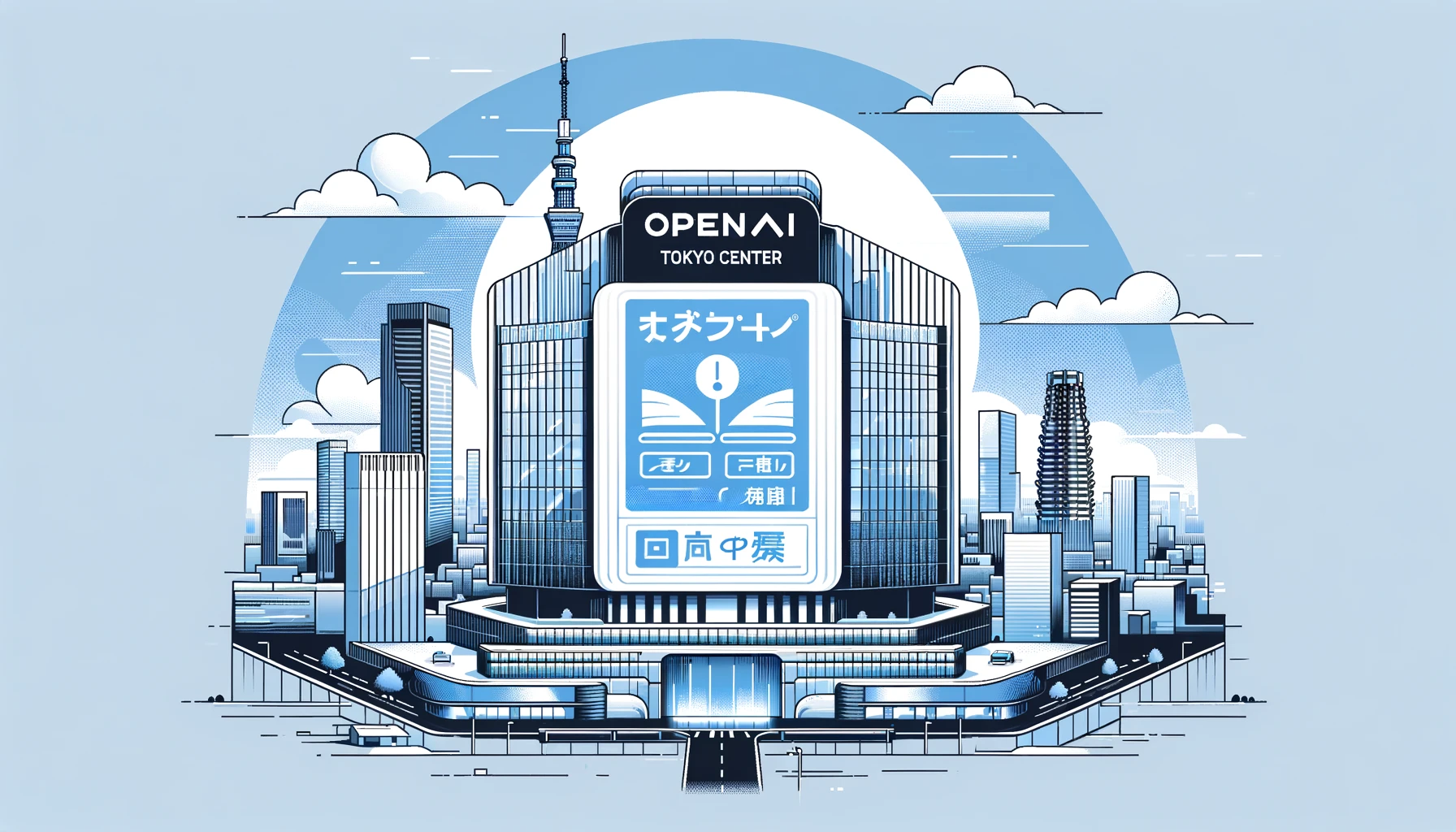
OpenAI, a global leader in artificial intelligence technology, has announced the expansion of its international presence with the opening of a new office in Tokyo, Japan. This strategic move not only solidifies OpenAI’s commitment to its global outreach but also introduces plans to develop a GPT-4 model specifically optimized for the Japanese language.
The decision to establish a base in Tokyo is influenced by several compelling factors. Primarily, it underscores the significant business opportunities OpenAI perceives in Japan. This expansion is part of OpenAI’s ongoing efforts to adapt and integrate its technology across diverse linguistic landscapes as it broadens its global footprint. Moreover, with the intensifying scrutiny on AI by governments and regulators worldwide, establishing a local presence will enable OpenAI to better navigate and potentially shape these evolving regulatory environments.
OpenAI, renowned for its ChatGPT technology, already enjoys considerable brand recognition. However, it faces stiff competition in Japan, notably from SoftBank, which has recently intensified its AI initiatives with the launch of SB Intuitions. This endeavor aims to develop large language models and generative AI services tailored specifically to the Japanese market.
Despite its global acclaim and a market valuation of approximately $80 billion, OpenAI operates with a modest workforce of about 1,200 employees worldwide. The Tokyo office marks OpenAI’s first foray into Asia and its fourth office globally, following its headquarters in San Francisco, and branches in London and Dublin.
OpenAI’s Global Offices and Focus Areas
| Location | Opened | Primary Focus |
|---|---|---|
| San Francisco | HQ | Global Operations, Research & Development |
| London | 2022 | AI Talent, European Market Entry |
| Dublin | 2022 | EU Regulatory Compliance, Market Expansion |
| Tokyo | 2024 | Asia Market Entry, Language Optimization |
OpenAI’s Japanese operations will be led by Tadao Nagasaki, a former Amazon Web Services executive with extensive experience in the region. As the newly appointed president of OpenAI Japan, Nagasaki’s primary role will be to spearhead business growth and team development locally. This appointment is strategic, focusing on leveraging local expertise to enhance OpenAI’s business engagements with Japanese enterprises.
Already, OpenAI boasts collaborations with major Japanese corporations such as Daikin, Rakuten, and Toyota. These companies utilize OpenAI’s enterprise version of ChatGPT, which offers enhanced privacy, data analysis, and customization capabilities.
ChatGPT has supported multiple languages, including Japanese, for some time. However, the development of a GPT-4 model specifically optimized for Japanese is expected to significantly improve the system’s comprehension of linguistic subtleties and cultural nuances. This advancement is anticipated to boost the model’s effectiveness in business applications, particularly in customer service and content creation sectors.
OpenAI has outlined several benefits of the customized Japanese GPT-4 model:
- Enhanced Cultural Comprehension: Better understanding of cultural nuances in business and public interactions.
- Improved Performance: Increased efficiency, speed, and cost-effectiveness.
- Localized Support: Tailored solutions for local business needs and regulatory requirements.
Early access to the GPT-4 custom model is currently being provided to select local businesses, with broader availability planned through the OpenAI API in the near future.
Key Highlights of OpenAI’s Expansion to Japan
- Strategic Expansion: Marks OpenAI’s first office in Asia, emphasizing the importance of the Japanese market in its global strategy.
- Local Leadership: Tadao Nagasaki to lead, bringing valuable regional expertise.
- Enterprise Engagement: Continued partnerships with major Japanese firms using customized AI solutions.
- Cultural and Linguistic Optimization: Development of a Japanese-optimized GPT-4 model to enhance local usability.
- Regulatory Navigation: Local presence to better understand and influence AI regulatory discussions in Japan.
In conclusion, OpenAI’s expansion into Japan represents a significant milestone in its global strategy. By establishing a local office and developing a Japanese-specific GPT-4 model, OpenAI not only aims to enhance its service offerings in the region but also seeks to play a pivotal role in shaping the future landscape of AI technology in Asia.
Related News:
Featured Image courtesy of DALL-E by ChatGPT
